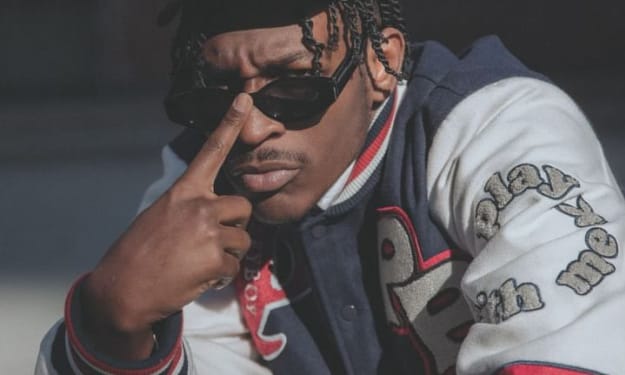LYRICS
I hurt myself today
To see if I still feel
I focus on the pain
The only thing that's real
The needle tears a hole
The old familiar sting
Try to kill it all away
But I remember everything
What have I become?
My sweetest friend
Everyone I know goes away
In the end
And you could have it all
My empire of dirt
I will let you down
I will make you hurt
I wear this crown of thorns
Upon my liar's chair
Full of broken thoughts
I cannot repair
Beneath the stains of time
The feelings disappear
You are someone else
I'm still right here
What have I become?
My sweetest friend
Everyone I know goes away
In the end
And you could have it all
My empire of dirt
I will let you down
I will make you hurt
If I could start again
A million miles away
I would keep myself
I would find a way
Source: Musixmatch
Songwriters: Michael Trent Reznor
Hurt lyrics © Leaving Hope Music Inc
About Johnny Cash: "John R. Cash (born J. R. Cash; February 26, 1932 – September 12, 2003) was an American singer, songwriter, musician, and actor.[4] Much of Cash's music contained themes of sorrow, moral tribulation, and redemption, especially in the later stages of his career.[5][6] He was known for his deep, calm bass-baritone voice,[a][7] the distinctive sound of his Tennessee Three backing band characterized by train-like chugging guitar rhythms, a rebelliousness[8][9] coupled with an increasingly somber and humble demeanor,[5] free prison concerts,[10] and a trademark all-black stage wardrobe which earned him the nickname "The Man in Black".[b]
Born to poor cotton farmers in Kingsland, Arkansas, Cash rose to fame in the burgeoning rockabilly scene in Memphis, Tennessee, after four years in the Air Force. He traditionally began his concerts by simply introducing himself, "Hello, I'm Johnny Cash",[c] followed by "Folsom Prison Blues", one of his signature songs. Alongside "Folsom Prison Blues", his other signature songs include "I Walk the Line", "Ring of Fire", "Get Rhythm", and "Man in Black". He also recorded humorous numbers like "One Piece at a Time" and "A Boy Named Sue", a duet with his future wife June called "Jackson" (followed by many further duets after their wedding), and railroad songs such as "Hey, Porter", "Orange Blossom Special", and "Rock Island Line".[13] During the last stage of his career, he covered songs by contemporary rock artists of the time; his most notable covers were "Hurt" by Nine Inch Nails, "Rusty Cage" by Soundgarden, and "Personal Jesus" by Depeche Mode.
Cash is one of the best-selling music artists of all time, having sold more than 90 million records worldwide.[14][15] His genre-spanning music embraced country, rock and roll, rockabilly, blues, folk, and gospel sounds. This crossover appeal earned him the rare honor of being inducted into the Country Music, Rock and Roll, and Gospel Music Halls of Fame.
Cash was born J. R. Cash in Kingsland, Arkansas, on February 26, 1932,[16][17] the son of Carrie Cloveree (née Rivers) and Ray Cash. He had three older siblings, named Roy, Margaret Louise, and Jack, and three younger siblings, named Reba, Joanne, and Tommy (who also became a successful country artist).[18][19] He was primarily of English and Scottish descent.[20][21][22] His paternal grandmother also claimed Cherokee ancestry.[23] He traced his Scottish surname to 11th-century Fife after meeting with the then-laird of Falkland, Major Michael Crichton-Stuart.[24][25][26] Cash Loch and other locations in Fife bear the name of his family.[24] He is a distant cousin of British Conservative politician Sir William Cash.[27] His mother wanted to name him John and his father preferred to name him Ray, so J. R. ended up being the only compromise they could agree on.[28] When Cash enlisted in the Air Force, he was not permitted to use initials as a first name, so he changed it to John R. Cash. In 1955, when signing with Sun Records, he started using the name Johnny Cash.[9]
In March 1935, when Cash was three years old, the family settled in Dyess, Arkansas, a New Deal colony established to give poor families the opportunity to work land that they may later own.[29] From the age of five, he worked in cotton fields with his family, singing with them as they worked. The Cash farm in Dyess experienced a flood, which led Cash later to write the song "Five Feet High and Rising".[30] His family's economic and personal struggles during the Great Depression gave him a lifelong sympathy for the poor and working class, and inspired many of his songs.
In 1944,[31] Cash's older brother Jack, with whom he was close, was cut almost in two by an unguarded table saw at work and died a week later.[32] According to his autobiography he, his mother, and Jack all had a sense of foreboding about that day; his mother urged Jack to skip work and go fishing with Cash, but Jack insisted on working as the family needed the money. Cash often spoke of the guilt he felt over the incident, and spoke of looking forward to "meeting [his] brother in Heaven".[9]
Cash's early memories were dominated by gospel music and radio. Taught guitar by his mother and a childhood friend, Cash began playing and writing songs at the age of 12. When young, Cash had a high-tenor voice, before becoming a bass-baritone after his voice changed.[33] In high school, he sang on a local radio station. Decades later, he released an album of traditional gospel songs called My Mother's Hymn Book. He was also significantly influenced by traditional Irish music, which he heard performed weekly by Dennis Day on the Jack Benny radio program.[34]
Cash enlisted in the Air Force on July 7, 1950.[35] After basic training at Lackland Air Force Base and technical training at Brooks Air Force Base, both in San Antonio, Texas, Cash was assigned to the 12th Radio Squadron Mobile of the U.S. Air Force Security Service at Landsberg, West Germany. He worked as a Morse code operator intercepting Soviet Army transmissions.[36] While at Landsberg he created his first band, "The Landsberg Barbarians".[37] On March 3, 1953, he received a telegram noting that Soviet Premier Stalin had died making him the first westerner to be aware of the death.[38][unreliable source?] On July 3, 1954, he was honorably discharged as a staff sergeant, and he returned to Texas.[39] During his military service, he acquired a distinctive scar on the right side of his jaw as a result of surgery to remove a cyst.[40][41]
In 1954, Cash and Vivian moved to Memphis, Tennessee, where he had sold appliances while studying to be a radio announcer. At night, he played with guitarist Luther Perkins and bassist Marshall Grant. Perkins and Grant were known as the Tennessee Two. Cash worked up the courage to visit the Sun Records studio, hoping to get a recording contract.[42] He auditioned for Sam Phillips by singing mostly gospel songs, only to learn from the producer that he no longer recorded gospel music. Phillips was rumored to have told Cash to "go home and sin, then come back with a song I can sell", although in a 2002 interview, Cash denied that Phillips made any such comment.[43] Cash eventually won over the producer with new songs delivered in his early rockabilly style. In 1955, Cash made his first recordings at Sun, "Hey Porter" and "Cry! Cry! Cry!", which were released in late June and met with success on the country hit parade.
On December 4, 1956, Elvis Presley dropped in on Phillips while Carl Perkins was in the studio cutting new tracks, with Jerry Lee Lewis backing him on piano. Cash was also in the studio, and the four started an impromptu jam session. Phillips left the tapes running and the recordings, almost half of which were gospel songs, survived. They have since been released under the title Million Dollar Quartet. In Cash: the Autobiography, Cash wrote that he was the farthest from the microphone and sang in a higher pitch to blend in with Elvis.
Cash's next record, "Folsom Prison Blues", made the country top five. His "I Walk the Line" became number one on the country charts and entered the pop charts top 20. "Home of the Blues" followed, recorded in July 1957. That same year, Cash became the first Sun artist to release a long-playing album. Although he was Sun's most consistently selling and prolific artist at that time, Cash felt constrained by his contract with the small label. Phillips did not want Cash to record gospel and was paying him a 3% royalty rather than the standard rate of 5%. Presley had already left Sun, and Phillips was focusing most of his attention and promotion on Lewis.
In 1958, Cash left Phillips to sign a lucrative offer with Columbia Records. His single "Don't Take Your Guns to Town" became one of his biggest hits, and he recorded a collection of gospel songs for his second album for Columbia. However, Cash left behind a sufficient backlog of recordings with Sun that Phillips continued to release new singles and albums from, featuring previously unreleased material until as late as 1964. Cash was in the unusual position of having new releases out on two labels concurrently. Sun's 1960 release, a cover of "Oh Lonesome Me", made it to number 13 on the C&W charts.
(When RCA Victor signed Presley, it also bought his Sun Records masters, but when Cash departed for Columbia, Phillips retained the rights to the singer's Sun masters. Columbia eventually licensed some of these recordings for release on compilations after Cash's death.)" (https://en.wikipedia.org/wiki/Johnny_Cash).
About the Creator
Shannon King
Born in St. Augustine, Fl, Shannon has a Master of Arts Degree in Applied Behavior Analysis from USF. She is currently pursuing a career in music, singing and writing with a focus in poetry, biographies, and inspirational messages.






Comments
There are no comments for this story
Be the first to respond and start the conversation.